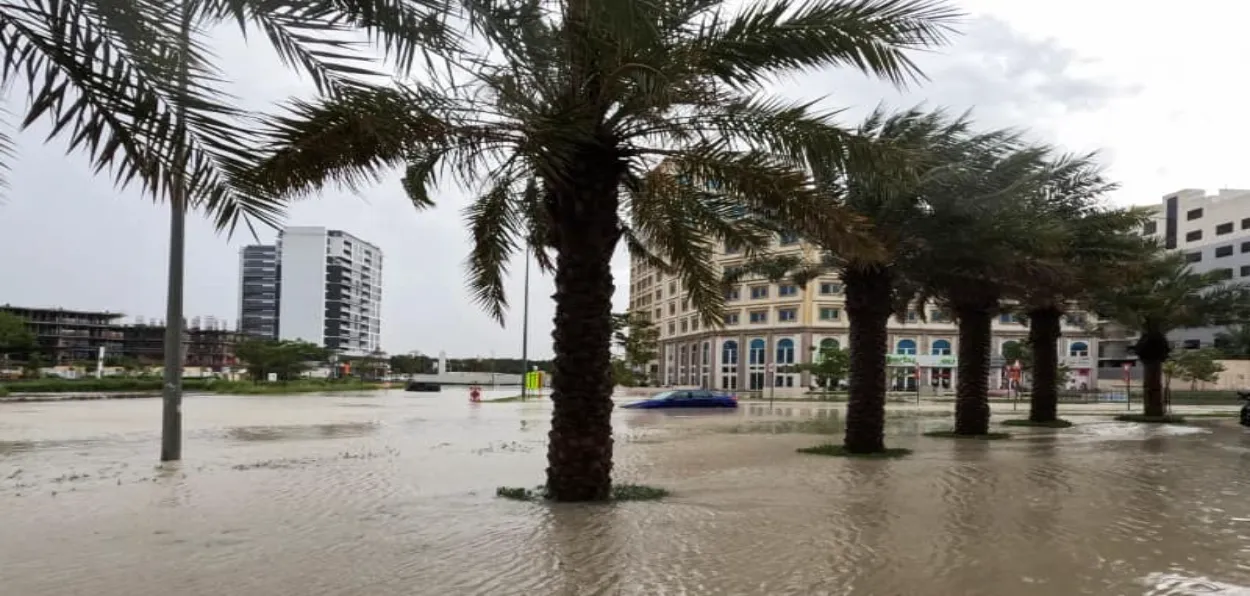
Eman Sakina
Natural calamities such as earthquakes, floods, hurricanes, and pandemics are a test from Allah. Islam provides both spiritual and practical guidance to protect ourselves from such disasters.
No matter how strong the infrastructure humans build or the numerous precautions one takes, natural calamity is inevitable. These calamities can strike anyone at any time irrespective of location, religion, or other demographics. For some, these incidents are mere unfortunate events, making them sad and complaining about nature.
Natural Calamities as a Test from Allah
Allah tests His servants in different ways to examine their patience and faith. The Qur’an states:
“And We will surely test you with something of fear and hunger and a loss of wealth and lives and fruits, but give glad tidings to the patient.” (Surah Al-Baqarah 2:155)
These trials serve as an opportunity for believers to increase their faith, seek forgiveness, and strengthen their connection with Allah.
Reminder of Human Weakness and Allah’s Power
Natural disasters remind people of their dependence on Allah. Despite advancements in science and technology, humanity cannot control nature completely. The Qur’an says:
“Do you feel secure that He who is over the heaven will not cause the earth to swallow you, and suddenly it will shake?” (Surah Al-Mulk 67:16)
Such events awaken people from negligence and remind them of the temporary nature of this world.
Punishment for Wrongdoers
Islam teaches that some calamities occur as a consequence of people’s disobedience to Allah. History provides examples of nations that were destroyed due to their sins:
The People of Nuh (Noah): A massive flood drowned those who rejected his message (Surah Al-Qamar 54:11-12).
The People of ‘Ad and Thamud: Destroyed by storms and earthquakes due to their arrogance (Surah Al-Haqqah 69:6-8).
The People of Lut (Lot): A rain of stones destroyed them due to their immoral behavior (Surah Hud 11:82-83).
However, not all disasters are punishments—some serve as warnings or reminders for repentance.
Mercy and Means of Martyrdom for Believers
For believers who die in calamities, Islam considers them martyrs (shuhada) and grants them a high status in the Hereafter. The Prophet Muhammad (PBUH) said:
The martyrs are five: the one who dies of plague, the one who dies of stomach illness, the one who drowns, the one who dies under debris, and the one who dies fighting in the cause of Allah.” (Sahih al-Bukhari 2829, Sahih Muslim 1914)
Thus, calamities are not always a punishment but can be a form of mercy for sincere believers.
A Call to Repentance and Seeking Forgiveness
Islam teaches that sins have consequences, and calamities serve as a reminder to seek Allah’s forgiveness. The Qur’an states:
“And whatever strikes you of disaster, it is for what your hands have earned; but He pardons much.” (Surah Ash-Shura 42:30)
The Prophet encouraged seeking forgiveness (istighfar) regularly, as it removes hardships and attracts Allah’s mercy.
A Lesson for Mankind to Reflect and Improve
Natural disasters often highlight social injustices, such as poverty and environmental destruction. They remind people to:
Be more charitable and help those in need
Avoid corruption and oppression
Protect the environment, as Islam emphasizes responsible stewardship of the Earth (Surah Al-A’raf 7:56)
Seeking forgiveness removes hardships:“And Allah would not punish them while they seek forgiveness.” (Surah Al-Anfal 8:33)
The Prophet said: “Give charity without delay, for it stands in the way of calamity.” (Tirmidhi 589)
Helping the needy and supporting relief efforts invite Allah’s mercy
ALSO READ: Shab-e-Barat: Tryst with spirituality and seeking forgiveness from Allah
Islam teaches a balanced approach to protecting oneself from natural calamities—faith, dua, practical preparedness, charity, and repentance. By taking these steps, a Muslim can ensure both worldly safety and divine protection.
